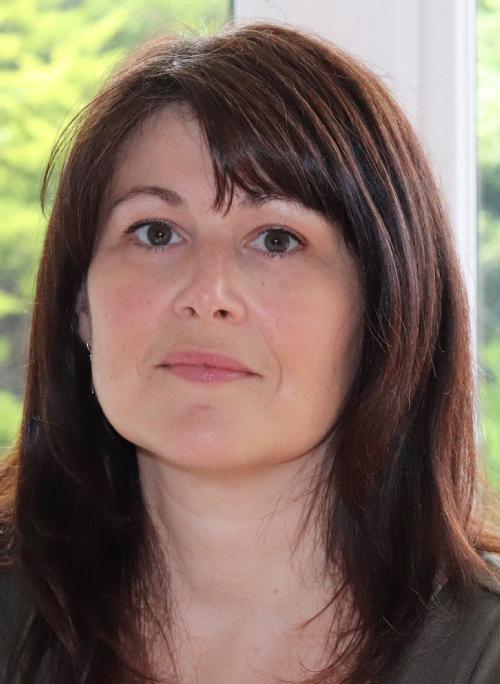WATE 2020 Commendee: Claire Bastie (WMS)
Why did you start teaching? What (or who) inspired you?
I started to teach support sessions in small groups when I was a second year PhD student in France, initially because this was a requirement of my PhD funding. I was very under-prepared for the commitment that it was! But after the first few weeks, teaching became more than an obligation and I really enjoyed the experience, which actually built the foundation of my teaching style. I then moved to the US as a postdoc and I continued teaching, experiencing the challenge of a complete different educational system. Fortunately, I had a fantastic mentor who was also a great communicator and an engaging reader who showed me the importance of listening to student expectations and being patient when developing my teaching practice.
What pearls of wisdom have you been given over the years that have helped you with your teaching?
Know your audience. Respect and reflect on your students’ personal identities, backgrounds and goals to construct, develop and adapt your teaching. And also, be current and aware of the rapid changes of your subject matter as well as the evolution of educational concepts, don’t fall into a routine.
Is there anything you wish someone had told you when you started out?
Like a lot of things in life, you can’t please everyone. No matter how well prepared you think you are, or how well you think you delivered, there will always be students who disagree with your way of teaching.
This can be disheartening for first-time teachers, but also for any teacher at any stage of their career (e.g. when changing institutions (or countries!) where students expectations might be different). It is essential to learn from these lesser positive experiences and use them as templates for improvement.
If you were mentoring a first-time teacher, what advice would you give?
Don’t forget you were a student before them, but don’t assume they all learn like yourself…or all in the same way, so be inclusive.
Be prepared, but not over prepared, give room for some spontaneity.
You don’t have to do it alone! Talk to as many people as you can when getting involved in teaching, learn from experienced teachers, invest time to observe different lecturers and their styles, and ask to be observed as well. This greatly helps determining what your own style is and importantly, what it is not.
(And obviously, the advice above; take any feedback, good and bad, as an opportunity for improvement)
What advice/top tips would you give to more experienced teachers?
Take the time to update content and form to make your teaching contemporary; and consider that students expectations might not be the same every year.
Listen to new ideas (even from less experienced teachers).
Take the time to mentor a first-time teacher- that’s also a great way to learn about your own practice.
What new technologies are you currently using to enhance your teaching? What are your top tips for using them?
I suppose I use the regular technologies that most Warwick teachers use, from Moodle, Mahara, lecture capture and different presentation tools (powerpoint, prezi etc.) but also, because I am more involved in the organization of the whole course, I use social media and I recently tried Sway to create more engaging newsletters to communicate with my students. Lastly, like all, I have become more accustomed to virtual conferencing and their different features.
What are the biggest challenges faced by teaching staff? How do you overcome these?
Lack of time, pressure to deliver more and more lectures, fitting and meeting set milestones etc. are obvious challenges that I have no doubt come to mind to many teaching staff. However, there are probably challenges that are equally if not more important, yet they are not always as obvious to us.
As Warwick employees, we should all be aware of issues around discrimination, inclusion/exclusion, abuse, bullying or harassment. However, I do think that my biggest challenge as a teacher is to recognise that even though I received training in these matters, I still remain biased in one way or another. Identifying in which ways my teaching, my assessment of students or more generally our recruitment of students could be more inclusive, transparent or even fairer to all is a crucial step to act on this challenge. I am an optimistic and I believe the recent BLM events have been an awakening to many people; it is the right time to tackle issues and move forward with practical solutions or options additional to our traditional EDI awareness. This is, without any doubt, the next step in my teaching career.
If you could write a recipe for the perfect inspiring teacher, what ingredients would you need?
I am not sure there is such thing as a perfect teacher! And I’d rather let students voice what they think is inspiring! However, I believe that being honest, upfront and willing to walk the extra mile to help your students to progress in every aspects of their learning are all important ingredients. And having fun while doing this is probably the little pinch of salt that makes the whole recipe work!
Enjoyed hearing from Claire? See the full list of 2020 winners and commendees and read other interviews.

